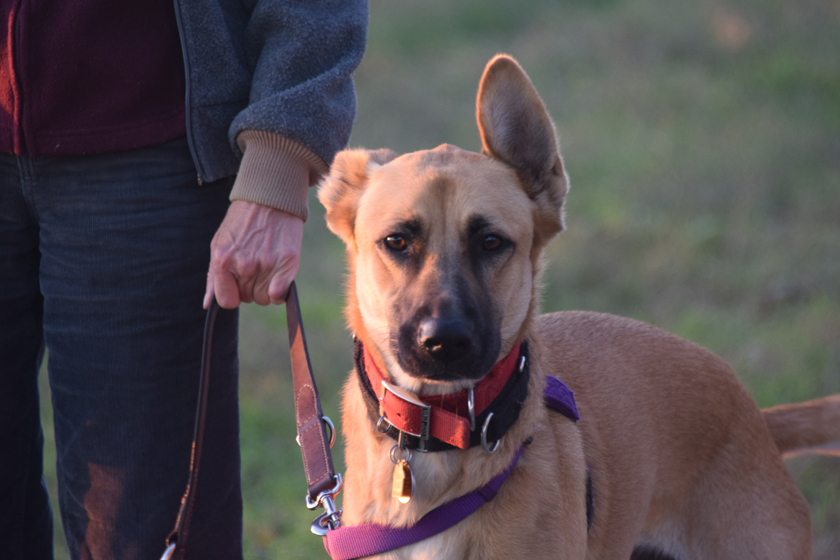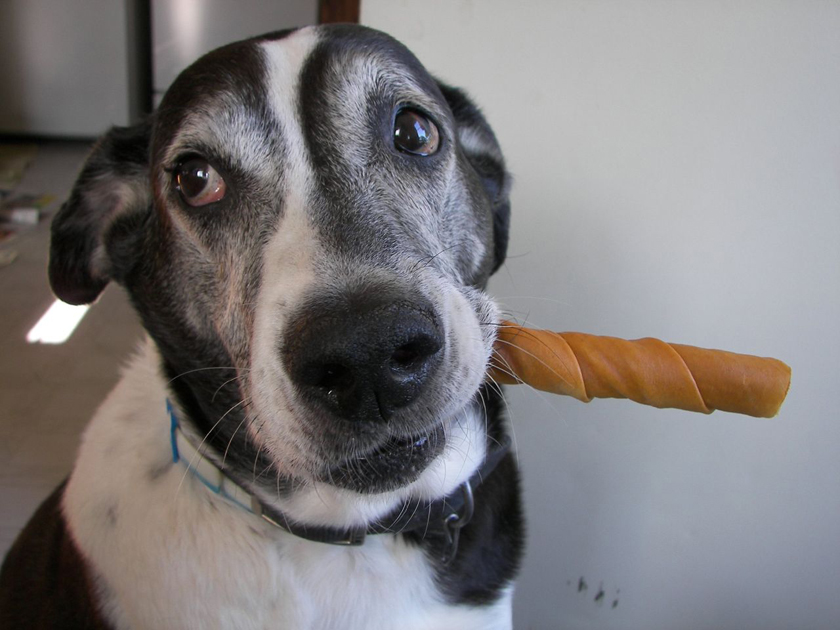Mean To You? Then They Are Dead To Your Dog
A new study from Japan shows dogs are unlikely to accept treats from those who snub their owners.
By Vicki Croke

Stand by me: new research shows that dogs don’t like the people who snub us. Photo: “Sam” by Tony Alter/Flickr Creative Commons.
If someone snubs you, your dog will notice, and she probably won’t like the perpetrator. In fact, that person won’t even be able to bribe her affection with a cookie.
Last week, Japanese scientists revealed a study confirming something many of us have suspected: that our dogs possess a rare and special kind of socially-aware loyalty or social cooperation. How rare? So far, only other humans (ages 3 and up) and a few primates seem capable of it. (The study will be published later this month in the science journal “Animal Behaviour.”)
According to Daily Mail:
Researchers led by Kazuo Fujita, a professor of comparative cognition at Kyoto University, tested three groups of 18 dogs using role plays in which their owners needed to open a box.
In all three groups, the owner was accompanied by two people whom the dog did not know.
In the first group, the owner sought assistance from one of the people, who actively refused to help.
In the second group, the owner asked for, and received, help from one person.
In both groups, the third person was neutral and was not involved in either helping or refusing to help.
After watching each box-opening scene, a dog was offered food by the two unfamiliar people in the room.
Canines that saw their owner being rebuffed were much more likely choose food from neutral observer while ignoring the person who refused to help their master.
Dogs whose owners were helped and dogs whose owners did not interact with either person showed no marked preference for accepting snacks from the strangers.
If dogs were just selfish, food-grubbing creatures they would have accepted treats equally from any of the strangers, right?

Treats are great, but human companions are more important. Photo: Amy/Flickr Creative Commons.
Agence-France Presse spoke with Professor Kazuo Fujita about that:
“We discovered for the first time that dogs make social and emotional evaluations of people regardless of their direct interest,” Fujita said.
If the dogs were acting solely out of self-interest, there would be no differences among the groups, and a roughly equal number of animals would have accepted food from each person.
“This ability is one of key factors in building a highly collaborative society, and this study shows that dogs share that ability with humans,” he said.
The trait is present in children from the age of about three, the research papers said.
Interestingly, noted Fujita, not all primates demonstrate this behaviour.
“There is a similar study that showed tufted capuchins (a monkey native to South America) have this ability, but there is no evidence that chimpanzees demonstrate a preference unless there is a direct benefit to them,” he told AFP.
We’ve all heard dog critics over the years say things like: “Of course your dog loves you. You feed him don’t you?” (The same could be said of children and significant others, by the way.) I hope this study takes a little bite out of that contention.
